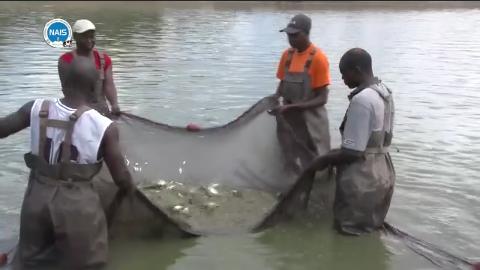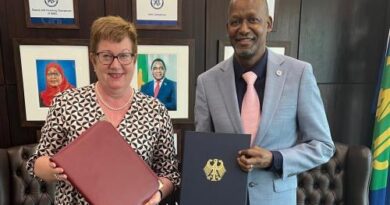Zambia Launches Fisheries Training Manuals in Collaboration with Germany
The Ministry of Fisheries and Livestock, in partnership with the German government, has unveiled six comprehensive training manuals aimed at addressing challenges within the fisheries sub-sector.
The initiative, spearheaded by Fisheries and Livestock Minister Makoza Chikote, seeks to enhance the delivery of coherent fisheries and aquaculture extension services, catering to both public and private extension workers and training institutions.
Minister Chikote emphasized the crucial role these training manuals play in bridging existing gaps and fostering improvement in fisheries and aquaculture extension services.
The launch marks a significant step toward ensuring a more streamlined and effective approach to fisheries management in Zambia.
In a speech delivered by the Director of Marketing in the Ministry of Fisheries and Livestock, Shadreck Mungalaba, Minister Chikote called upon universities, colleges, artisanal trainers, non-governmental organizations, and other partners involved in fisheries and aquaculture training to integrate these manuals into their programs.
This integration is envisioned to elevate the competence of extension workers and contribute to the overall improvement of the fisheries sub-sector.
The event also featured Samantha Mapfumo, the GIZ Fish for Food Project Coordinator, who highlighted the positive impact of the newly launched training manuals on the quality of education and training within the fisheries sub-sector.
Ms. Mapfumo praised the development and launch as a crucial milestone for Zambia, emphasizing its potential to enhance access to sustainable fish products, particularly for those facing food insecurity.
The collaborative effort between the Ministry of Fisheries and Livestock and the German government demonstrates a commitment to addressing critical issues within the fisheries sub-sector, ultimately aiming to strengthen the competence of those involved and improve the overall sustainability of Zambia’s fisheries and aquaculture practices.
The training manuals are expected to become instrumental tools in advancing knowledge and skills essential for the responsible management of fisheries resources in the country.



